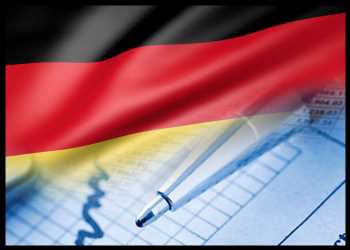German ZEW Economic Sentiment Falls To Lowest Since 1992
German economic confidence weakened in September to the lowest since late 1992 as financial market experts were more concerned about the prospect of energy shortages in the winter and its subsequent impact on the economy, a closely watched survey revealed Tuesday.
The ZEW Indicator of Economic Sentiment fell to -61.9 in September from -55.3 in August, survey results from the ZEW – Leibniz Centre for European Economic Research showed. The reading was the lowest since December 1992 and also below economists’ forecast of -60.0.
Similarly, the assessment of current economic situation declined 12.9 points to -60.5 in September. The expected score was -52.2.
The prospect of energy shortages in winter has made expectations even more negative for large parts of the German industry, ZEW President Achim Wambach, said.
In addition, growth in China was assessed less favorably. The latest statistical figures already showed a decline in incoming orders, production, and exports, Wambach commented on current expectations.
Economic sentiment regarding the developments of the euro area also weakened in September, by 5.8 points to -60.7. The current situation index declined even more sharply by 16.9 points to -58.9.
In the latest ifo Economic Forecast Autumn, released Monday, think-tank said gross domestic product will increase by 1.6 percent this year and then contract by 0.3 percent next year.
While economic output is still expected to stagnate in the third quarter of 2022, it is likely to contract by 0.2 percent and 0.4 percent respectively in the two quarters of the winter half-year, the institute said.
Inflation is forecast to peak at around 11 percent in the first quarter of 2023 as energy suppliers will be markedly adjusting their electricity and gas prices in the light of high procurement costs.
Source: Read Full Article

